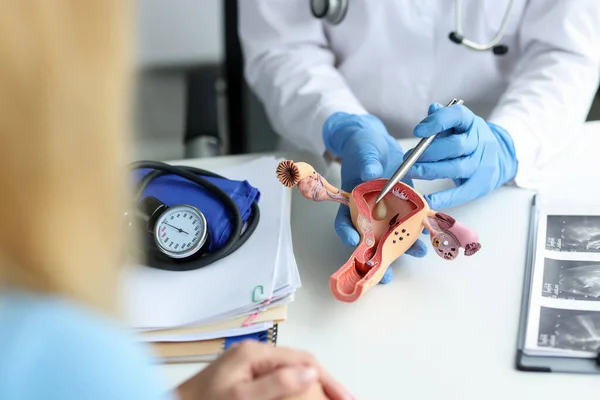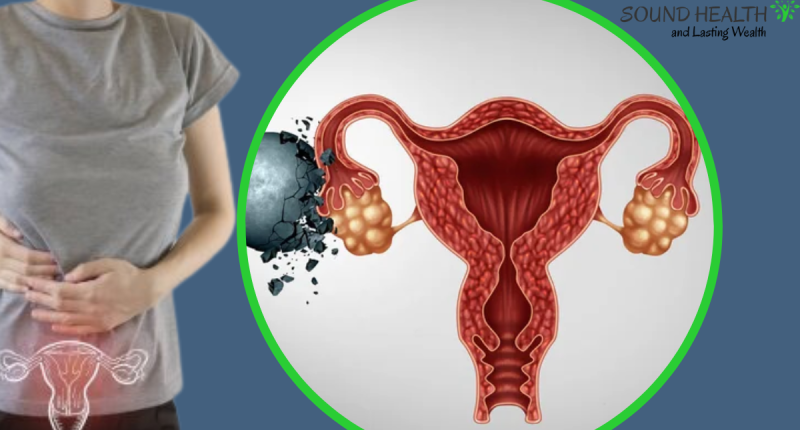Fallopian tubes are two thin, muscular tubes that connect the ovaries to the uterus. They are responsible for transporting eggs from the ovaries to the uterus, where they can be fertilized by sperm. If one or both fallopian tubes are blocked, an egg will not be able to travel to the uterus and fertilization cannot occur.
There are a number of reasons why fallopian tubes may become blocked, including:
- Pelvic inflammatory disease (PID): PID is an infection of the female reproductive organs that can be caused by sexually transmitted infections (STIs) or other bacteria. PID can cause inflammation and scarring of the fallopian tubes, which can lead to blockages.
- Endometriosis: Endometriosis is a condition in which tissue from the lining of the uterus (endometrium) grows outside of the uterus. Endometrial tissue can sometimes grow on the fallopian tubes, causing blockages.
- Tuberculosis: Tuberculosis is a bacterial infection that can affect the lungs and other parts of the body, including the fallopian tubes. Tuberculosis can cause inflammation and scarring of the fallopian tubes, which can lead to blockages.
- Sexually transmitted infections (STIs): Some STIs, such as chlamydia and gonorrhea, can cause inflammation and scarring of the fallopian tubes, which can lead to blockages.
- Previous pelvic surgery: Pelvic surgery, such as a cesarean section or tubal ligation, can sometimes damage the fallopian tubes and lead to blockages.
- Scar tissue from appendicitis or other infections: Scar tissue from appendicitis or other infections in the pelvic area can sometimes block the fallopian tubes.
Other less common causes of blocked fallopian tubes include:
- Fibroids: Fibroids are benign tumors that can grow on the uterus or other pelvic organs. Fibroids can sometimes press on the fallopian tubes and block them.
- Congenital defects: In some cases, women are born with blocked fallopian tubes. This is a rare condition.
- Cancer: In rare cases, cancer of the uterus, fallopian tubes, or ovaries can block the fallopian tubes.
If you have blocked fallopian tubes, you may be unable to get pregnant naturally. However, there are a number of fertility treatments that can help you conceive, such as in vitro fertilization (IVF). Continue read to learn where the egg go and after, read the 7 Healthy Fruits for Fallopian Tube Regeneration
Where does the egg go if fallopian tubes are blocked?

If fallopian tubes are blocked, the egg cannot travel to the uterus to be fertilized by sperm. This can lead to infertility.
If only one fallopian tube is blocked, the egg may be able to travel through the other tube and fertilization can still occur. However, if both tubes are completely blocked, the egg will not be able to travel to the uterus and fertilization cannot occur.
If the fallopian tubes are partially blocked, there is a small chance that the egg could still be fertilized and travel to the uterus. However, this is more likely to result in an ectopic pregnancy, which is a pregnancy that occurs outside of the uterus. Ectopic pregnancies can be dangerous and require medical treatment.
Here are the possible scenarios for where the egg may go if fallopian tubes are blocked:
- Egg remains in the fallopian tube: The egg may remain in the fallopian tube and eventually disintegrate. This is the most likely scenario if the blockage is complete.
- Egg travels to the abdomen: If the blockage is partial, the egg may be able to travel through the fallopian tube and into the abdomen. This can lead to an ectopic pregnancy.
- Egg does not ovulate: If the blockage is near the ovary, it may prevent the egg from ovulating in the first place.
If you have blocked fallopian tubes and are trying to get pregnant, there are a number of fertility treatments available, such as in vitro fertilization (IVF).
Please note that this is not medical advice and you should always consult with a doctor or other healthcare professional if you have any questions or concerns about your health.
Treatment options for blocked fallopian tubes

There are a number of treatment options for blocked fallopian tubes, depending on the cause and severity of the blockage. Some common treatments include:
- Medication: In some cases, medication may be used to treat infections or inflammation that are causing the blockage. For example, antibiotics may be used to treat pelvic inflammatory disease (PID).
- Surgery: Surgery may be necessary to remove scar tissue or adhesions that are blocking the fallopian tubes. This is a minimally invasive procedure that is typically performed through a small incision in the abdomen.
- In vitro fertilization (IVF): IVF is a fertility treatment that involves fertilizing an egg with sperm in a laboratory and then transferring the fertilized embryo to the uterus. IVF is a good option for women with blocked fallopian tubes, as it bypasses the need for the fallopian tubes to transport the egg to the uterus.
The best treatment option for you will depend on your individual circumstances. If you have blocked fallopian tubes, talk to your doctor about the best way to proceed.
Here is a brief description of each treatment option:
Medication:
- Antibiotics: Antibiotics can be used to treat infections that are causing the blockage, such as pelvic inflammatory disease (PID).
- Anti-inflammatory drugs: Anti-inflammatory drugs, such as ibuprofen, can be used to reduce inflammation that is causing the blockage.
Surgery:
- Laparoscopy: Laparoscopy is a minimally invasive surgery that is used to diagnose and treat blocked fallopian tubes. During a laparoscopy, a thin camera is inserted through a small incision in the abdomen. The surgeon can then view the fallopian tubes and other pelvic organs to identify the cause of the blockage. If necessary, the surgeon can also remove scar tissue or adhesions that are blocking the fallopian tubes.
- Salpingostomy: Salpingostomy is a surgical procedure to open a blocked fallopian tube. This procedure is typically performed through a laparoscopy.
- Fimbrioplasty: Fimbrioplasty is a surgical procedure to repair the damaged end of a fallopian tube. This procedure is also typically performed through a laparoscopy.
In vitro fertilization (IVF):
- IVF: IVF is a fertility treatment that involves fertilizing an egg with sperm in a laboratory and then transferring the fertilized embryo to the uterus. IVF is a good option for women with blocked fallopian tubes, as it bypasses the need for the fallopian tubes to transport the egg to the uterus.
If you have any questions or concerns about your treatment options, please talk to your doctor.
Home remedy options for blocked fallopian tubes

There are a number of home remedies that have been claimed to help unblock fallopian tubes. However, it is important to note that there is no scientific evidence to support the effectiveness of these remedies.
Some of the most common home remedies for blocked fallopian tubes include:
- Castor oil: Castor oil is a vegetable oil that is extracted from the castor bean plant. It has anti-inflammatory and antimicrobial properties. Some people believe that applying castor oil to the abdomen can help to unblock fallopian tubes.
- Turmeric: Turmeric is a spice that contains curcumin, a compound with powerful anti-inflammatory and antioxidant properties. Some people believe that taking turmeric supplements or consuming turmeric in food can help to unblock fallopian tubes.
- Ginger: Ginger is a spice that has anti-inflammatory and antioxidant properties. Some people believe that taking ginger supplements or consuming ginger in food can help to unblock fallopian tubes.
- Garlic: Garlic is a bulb that has antimicrobial and antioxidant properties. Some people believe that consuming garlic in food can help to unblock fallopian tubes.
- Vitamin C: Vitamin C is an antioxidant that is important for immune function and wound healing. Some people believe that taking vitamin C supplements can help to unblock fallopian tubes.
It is important to note that these home remedies may not be safe for everyone. For example, castor oil can cause side effects such as diarrhea, nausea, and vomiting. Turmeric and ginger can also cause side effects such as stomach upset and heartburn. Garlic can interact with certain medications, such as blood thinners.
If you are considering using any of these home remedies, it is important to talk to your doctor first.
Here are some additional tips that may help to improve your overall fertility:
- Maintain a healthy weight.
- Eat a healthy diet.
- Exercise regularly.
- Get enough sleep.
- Avoid smoking and excessive alcohol consumption.
- Manage stress.
Symptoms

Blocked fallopian tubes often do not cause any symptoms. This is why many women do not know they have blocked fallopian tubes until they try to get pregnant and have difficulty doing so.
However, some women may experience symptoms such as:
- Pelvic pain, especially during ovulation or menstruation
- Painful intercourse
- Unusual vaginal discharge
- Fever
- Difficulty getting pregnant
If you experience any of these symptoms, it is important to see a doctor to rule out any underlying medical conditions, such as pelvic inflammatory disease (PID) or endometriosis.
If you are trying to get pregnant and have been unable to do so for one year or more, you may want to talk to your doctor about getting tested for blocked fallopian tubes. There are a number of tests that can be used to diagnose blocked fallopian tubes, including:
- Hysterosalpingography (HSG): HSG is an X-ray procedure that uses a dye to outline the uterus and fallopian tubes. If the fallopian tubes are blocked, the dye will not be able to pass through them and will show up on the X-ray.
- Laparoscopy: Laparoscopy is a minimally invasive surgical procedure that allows the doctor to view the uterus, fallopian tubes, and other pelvic organs with a thin camera. If the fallopian tubes are blocked, the surgeon can see the blockage and may be able to correct it during the same procedure.









